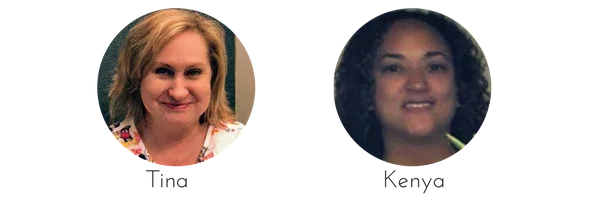 For National Case Management Week, we asked Tina Taylor, one of the dedicated case managers at Singing River Health System, and Kenya Undziakiewicz, a Utilization Review Specialist at MultiCare Health System, to share their thoughts on the discipline of case management.
For National Case Management Week, we asked Tina Taylor, one of the dedicated case managers at Singing River Health System, and Kenya Undziakiewicz, a Utilization Review Specialist at MultiCare Health System, to share their thoughts on the discipline of case management.
Here are their stories:
Tell us a little bit about yourself outside of work.
T: I am married to my wonderful husband of 28 years, Steve. We have one son, Joshua, who recently has left us empty nesters. I enjoy family time, fishing, gardening, running, and working on cars. I am a history buff and have a black belt in Taekwondo.
K: I grew up an “Army Brat” which contributed to my insatiable desire to travel (far and often). My family is my whole entire world and any free time I have is spent with them while also enjoying all of the great (semi-adventurous) outdoor activities that the Pacific Northwest has to offer.
What your background and how does that play into your current role?
T: I have been a registered nurse since 1995. I hold a MSN and am currently a PhD candidate at the University of South Alabama. I could not do my role appropriately without my nursing knowledge and experience.
K: My nursing background includes acute inpatient adult and pediatric mental health with the State of Washington, ambulatory surgery, Family Medicine with the Department of Defense, Community Health with a large Pierce County Provider, Case Management-Utilization Management and Medical Management Trainer/Auditor for Centene Corporation, a large Managed Medicaid health plan. This previous experience has helped me tremendously in building a solid foundation of knowledge in various areas of medicine, which helps me assist my peers in times of increased work load in specialty areas.
What drew you to the field of case management?
T: I had a close friend who worked in case management and explained how rewarding a field it was. She was right. I have enjoyed it ever since.
K: My position in Community Health introduced me to nursing from a case management perspective with more of a focus on Quality Improvement/Assurance, trending and tracking patient outcomes.
What do you most enjoy about your role?
T: Helping others and dealing with the challenges of the ever-changing insurance policies.
K: I most enjoy the opportunity to learn! I have learned about such a wide variety of disease processes and standards of care as well as innovative techniques while doing Utilization Management, most likely much more than I would have had the opportunity to learn as a nurse on the floor.
Tell us about some of your goals – current and future.
T: I am currently a PhD candidate in the Instructional Design and Development program with an emphasis on Human Performance Improvement at the University of South Alabama. My current research is on nursing education and improving student outcomes in simulation based learning through cognitive strategies, and I’m sure my future career path will have some degree of research involvement.
K: I will soon be beginning courses for my Master’s in Nursing Informatics.
How do you use XSOLIS technology within your role and organization?
T: Having worked with many different software systems over the past 15 years, I have to say XSOLIS is one of the better products. It is user friendly and integrates the entire case management process, from utilization review to discharge planning, physician advisement, and denial management. The analytics assist in building a clear picture for each patient. This technology has helped us to streamline our case management and physician advisor processes.
K: Integration here at MultiCare…has been a great value in prioritizing our daily activities.
What’s one thing that many people (even in healthcare) might not know about case management?
T: Case management is one of the most complex and crucial departments in an organization. A great deal of what case management impacts is behind the scenes. It encompasses passionate people who work hard to make sure the organization receives the appropriate reimbursement, deal with denial management, length of stay issues, and documentation improvement, all while advocating for patients and handling their care transitions in a timely manner and to a safe environment. Quite often, case management is thought of as only a social service department, but our work extends beyond following the patient from the beginning of their admission to their discharge.
K: That Nurse Case Managers are often the most integral piece in the [health] continuum, since they are usually the one person that brings all departments within the health care system together to tackle complex problems and bring about better patient outcomes.
Any parting thoughts?
T: I would like to encourage case managers to educate their organization, community, and others on what case managers do for patients, their families, their organization, and the community at large. By creating an atmosphere of awareness and improved collaboration across all walks of healthcare, we can assure patients have a seamless transition throughout their healthcare journey.
K: I look forward to visiting Nashville for XCHANGE!
Thanks for all you do, Tina and Kenya.
